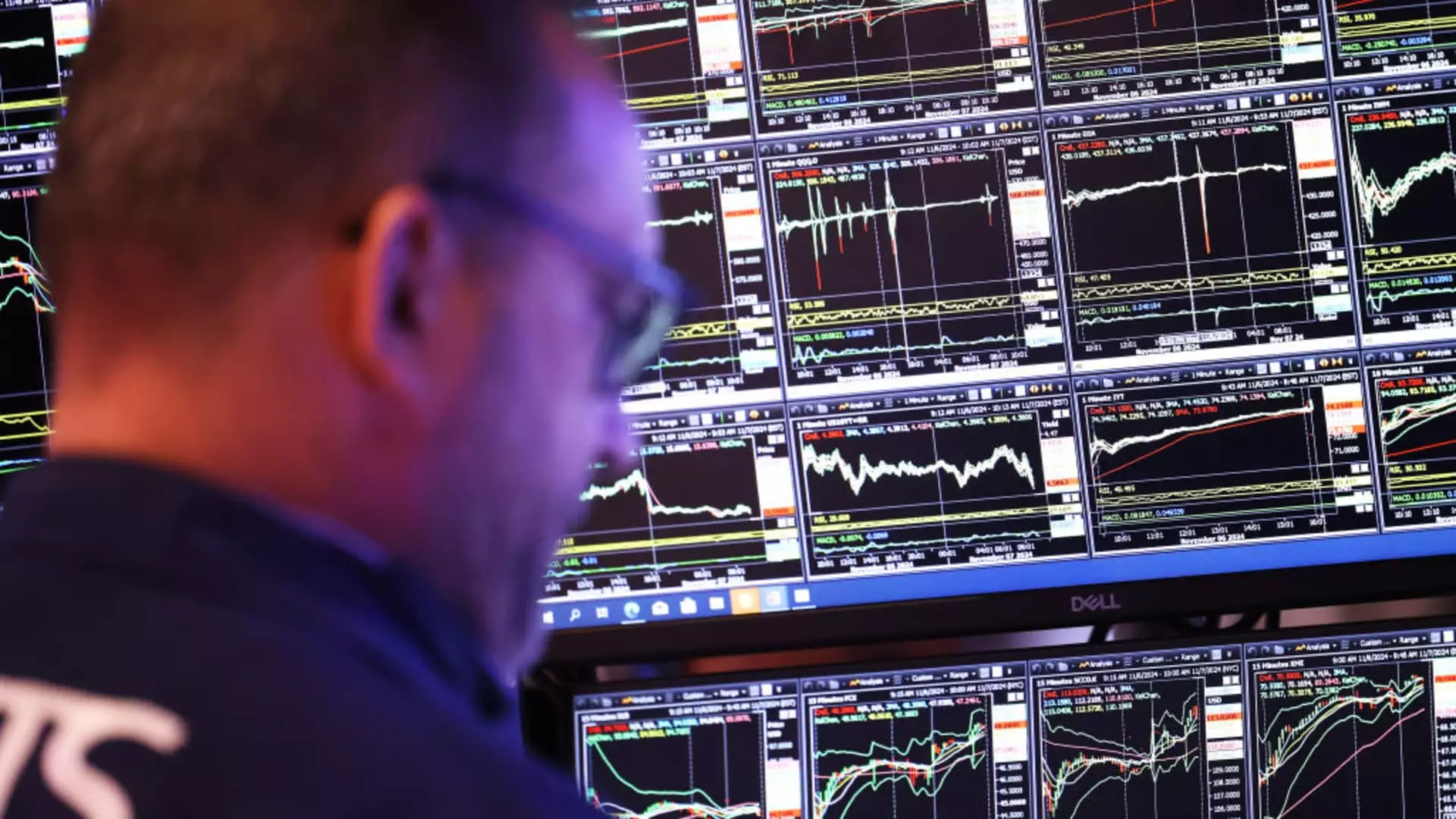European financial markets experienced a downturn on Monday as traders prepared themselves for a decisive week regarding central bank policies. The Stoxx 600 index, a benchmark for regional performance, fell by 0.14% shortly after the market opened in London. The automotive sector was particularly hard hit, indicating broader investor apprehension regarding economic stability and growth prospects across the continent. Notably, France’s CAC 40 index declined by 0.58%, reflecting concerns raised by Moody’s recent credit rating downgrade of the French economy. The shift from Aa2 to Aa3 has prompted discussions around the long-term viability of French public finances amid significant political turbulence.
Political Turmoil Influences Financial Landscape
The political backdrop in France remains tumultuous, especially following the appointment of Francois Bayrou as the country’s fourth prime minister this year. Such frequent changes in leadership only heighten concerns about effective governance and stability, elements crucial for fostering investor confidence. Moody’s rationale for the downgrade underscores the direct connection between political stability and financial assessments, suggesting that ongoing instability could have tangible repercussions on fiscal health.
Corporate Movements Create a Mixed Impact
On the corporate front, the media landscape in France witnessed notable developments. Shares of Vivendi surged by 33% following the successful spinoff of three major businesses previously under its umbrella. This strategic step was endorsed by shareholders earlier in the month, aimed at unlocking enhanced valuations for each entity. However, the excitement faded for Canal+, a prominent broadcaster and film studio, as its debut on the London Stock Exchange was rocky, with shares plunging by 13% by mid-morning. CEO Maxime Saada emphasized the rationale behind choosing London for this listing, citing aspirations for growth in English-speaking markets.
Amid these domestic shifts, investors are also keenly attuned to global economic indicators. In Germany, a vote of confidence in Chancellor Olaf Scholz is anticipated, following the collapse of his coalition government last month. This vote is critical, as it may facilitate early elections in February, further affecting market sentiment. The uncertainty surrounding governance in one of Europe’s largest economies holds significant implications for regional economic forecasts.
Looking across the Atlantic, the forthcoming monetary policy meeting of the U.S. Federal Reserve is capturing global attention. Set for December 18, this gathering is pivotal for traders who are currently betting on a substantial likelihood—96% according to the CME FedWatch tool—that a 25-basis-point cut will be enacted. Federal Reserve Chair Jerome Powell’s remarks and the subsequent policy statement are highly anticipated, as they will provide critical insights into the Fed’s future direction. Additionally, the Bank of England’s meeting on December 19 will be under scrutiny, albeit expectations for another rate cut appear minimal.
European markets are traversing a complex landscape shaped by political fluctuations, corporate restructuring, and looming central bank decisions. These interconnected factors illustrate the resilience required by investors as they navigate through periods of uncertainty and potential growth.


Leave a Reply